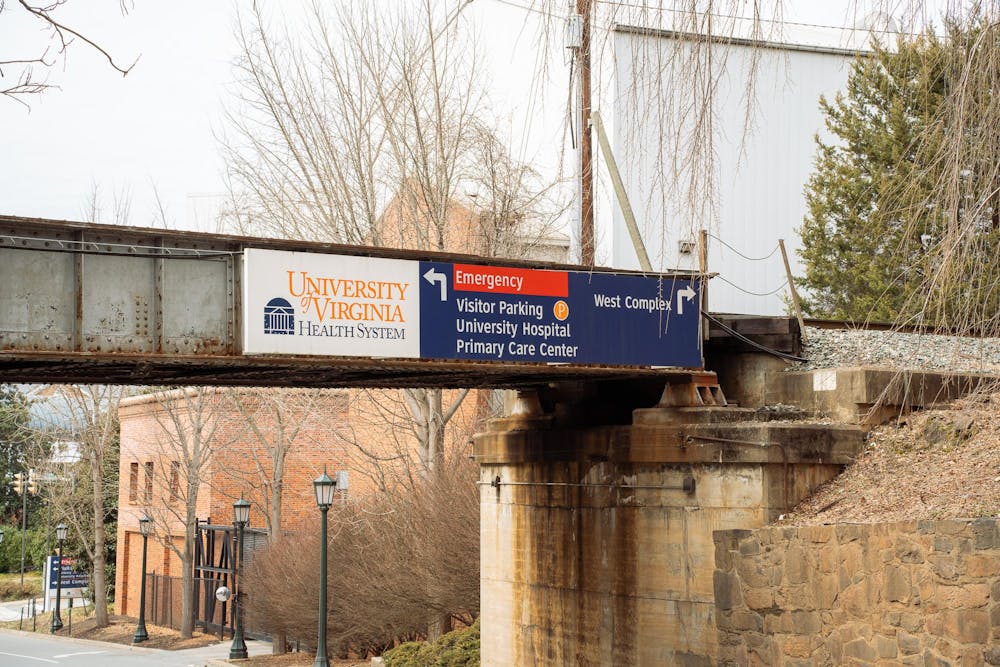Nearly one-third of Americans do not have routine access to primary care, and this certainly includes students — those with less comprehensive health insurance coverage or state policies may rely on the University for their care. However accessible U.Va. Health seems to students, both internal and external changes are leading to deteriorating provisions for the community and dramatic cuts in funding for healthcare services. As a result, students may begin to feel the effects of the temporary loss of accessible healthcare services like the Student Health & Wellness. In the face of controversy, the University must stand firm in their stance regarding prioritizing the well-being of the community by establishing policies that guarantee accessible services.
U.Va. Health is an integrated health system that aims to provide care across Virginia, encompassing a world-class medical center along with three community hospitals, a specialty rehabilitation hospital and care clinics throughout Virginia. The University’s care center is one of only 57 to be designated a comprehensive cancer center — the highest federal ranking bestowed upon the nation’s top cancer programs in recognition for leading treatment and research efforts by the National Cancer Institute. And this isn’t the only service the University needs to continue in order to hold itself to exceptional standards. U.Va. Health maintains the top pediatric hospital in Virginia, and also offers specialty therapy sessions for lymphedema, osteoporosis, Parkinson’s and more that may not be available elsewhere.
As one of the leading comprehensive hospitals in the state, U.Va. Health has the obligation to provide quality care, not only for its community, but for surrounding ones as well. Areas in Southwest and Southside Virginia face evident healthcare challenges, with hospitals struggling financially and limited mental health services as just a few of their difficulties. With U.Va. Health being as prominent and prestigious as it is, it needs to provide support for patients across the state, focusing especially on underserved communities such as these. Patients will rely on U.Va’s services more and more as their other options dwindle with government intervention.
In the past, U.Va. Health has provided exemplary services to their patients, but with recent policy changes, there is valid concern that many of these will go away. Recent initiatives from the federal government are trying or have successfully changed a variety of healthcare aspects that make it harder for many patients to get care. Funding for the ACA Navigator Program will drop from $97.7 million to $10 million. This provided people with free assistance in navigating and accessing their health coverage options, which will now be extremely limited. In addition, a current proposal by House legislators proposes nearly $1 trillion in cuts to Medicaid and food stamps. With all of this budget cutting, many patients that rely on either healthcare program will no longer have access to the services they need. Health systems that have the resources, such as U.Va. Health, must pick up the slack and help where they can.
Despite the increasing need for U.Va. Health to step into the government’s shoes, they appear to be dropping the ball — perhaps too willingly. The largest example of this is their recent changes to gender-affirming care. Gender-affirming care refers to a range of measures to help people align with their gender identity. While the University used to provide this, they temporarily paused care to patients under 19. They have resumed care for existing patients after widespread protests from the community, but still do not extend these services for new patients. Beyond severely limiting the intake of new patients and the accessibility of these services, their recent changes on gender-affirming care will have widespread negative repercussions.
26 states have passed bans on gender-affirming care, including every state south of Virginia and as west as Texas. Because Virginia is one of the southernmost states that offers this care, the University was previously an epicenter for people seeking treatment. Now that it is no longer offered to new patients, people will have to go elsewhere to find care, likely having to travel even farther and bear extra expenses or perhaps not receiving this treatment at all. It is extremely irresponsible for a healthcare provider to end any sort of service for new patients.
While gender-affirming care is one of the biggest ways U.Va. Health is falling short, it is not the only one. In the past, patients have shed light on the fact that U.Va. has taken advantage of its patients by significantly over-charging them in comparison to what insurers would pay, in addition to suing substantially more patients than the average hospital. More recently, the CEO resigned after copious accusations of prioritizing funding for the executive board rather than necessary staff, as well as other fraud allegations. Although it may remain unknown exactly what was at play, there was clearly misconduct at the head of the system, and U.Va. needs to make a concentrated effort to go in the opposite direction — prioritizing ethical healthcare for all.
With the trials and tribulations of our current nation, it is not as easy as it sounds for institutions, systems and communities to continue to dedicate themselves to their standards. There is much at stake here — and with the obvious threats being made to universities who do not comply, there is always the risk of a sharp decrease in funding or some other form of resource abandonment. However, all of this goes to show it is all the more important that we continue to do what we do best. In the case of U.Va. Health, this means prioritizing care for those who need it, especially when their options are rapidly decreasing elsewhere.
Adeline Garvie is an opinion columnist who writes about health, technology and environment for The Cavalier Daily. She can be reached at opinion@cavalierdaily.com.
The opinions expressed in this column are not necessarily those of The Cavalier Daily. Columns represent the views of the authors alone.







